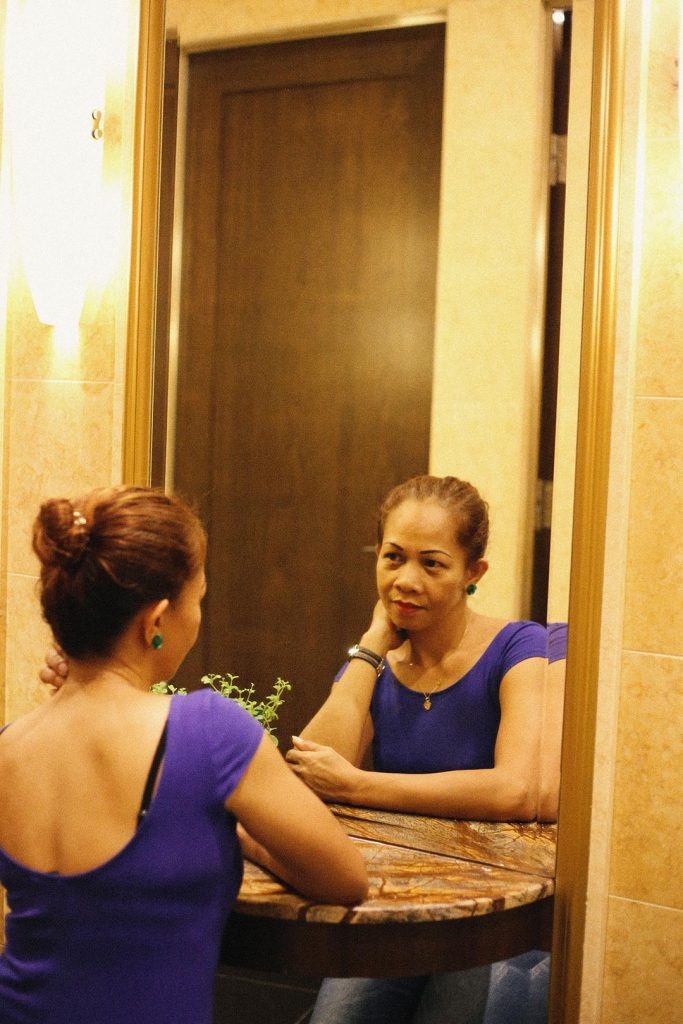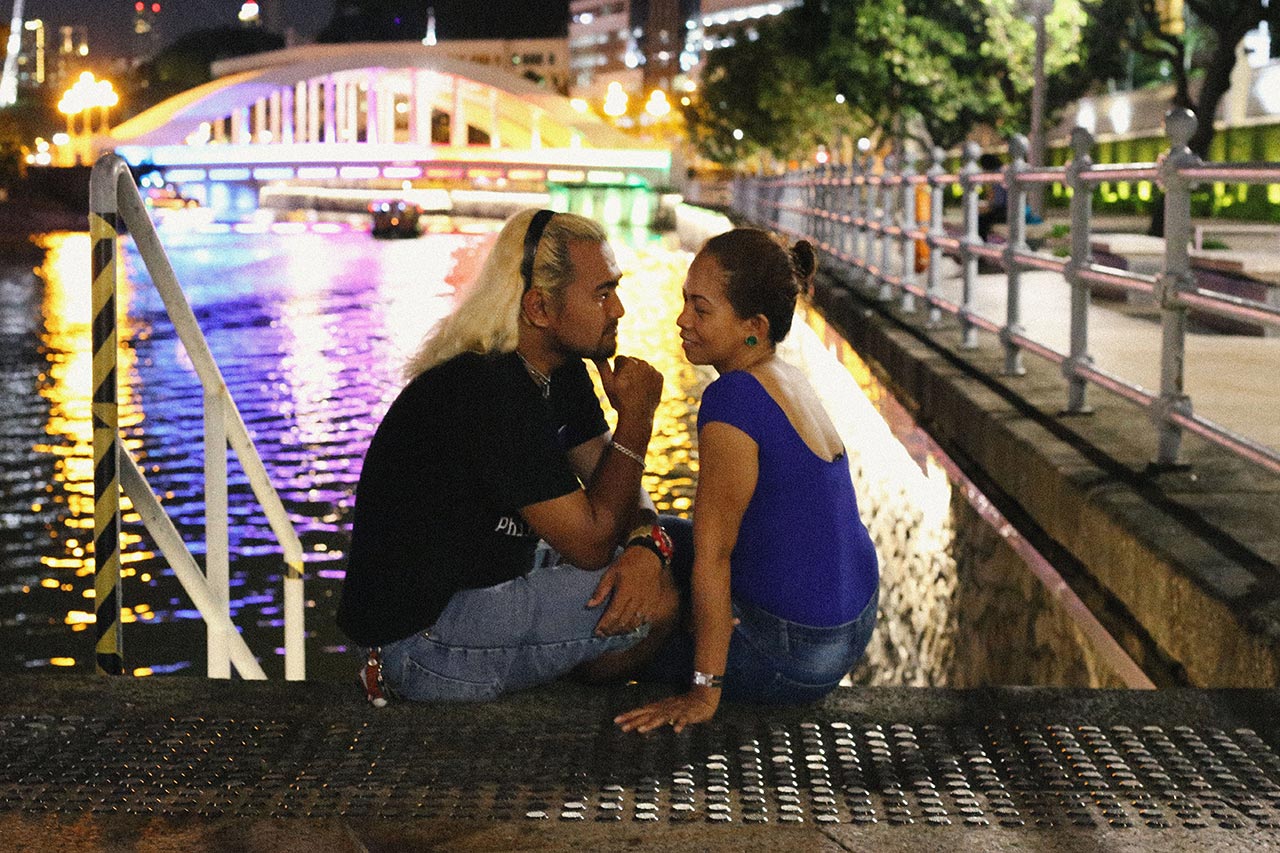Leny and Rosli are in love.
Last February, Rosli saw Leny and her friend at a football game, and decided to approach her. She wouldn’t give him her phone number; he ended up with her friend’s number instead. He eventually persuaded that friend to give him Leny’s number, so he could ask her out. The rest is history.
Leny and Rosli are engaged. But they can’t actually get married – not without express permission from the Singapore government, anyway.
This is because Leny is a migrant domestic worker, here in Singapore on a work permit. According to Singapore’s laws, current and former work permit holders wishing to marry Singaporeans or Permanent Residents are required to seek approval from the Ministry of Manpower.
“I never in my mind thought that I could get married under Singapore law, because I knew from the beginning that this was the rule for work permits,” Leny said.
Singapore needs migrant workers, that much is clear. It needs the men from India and Bangladesh and China to build its malls and condominiums and public housing estates. It needs the women from the Philippines, Indonesia and Myanmar to clean homes, provide childcare and care for the elderly.

There is a widespread expectation that these migrants are “just here to work”, but it’s an unrealistic one. Although employment is the main motivation behind travelling to Singapore, life cannot be so easily compartmentalized. Migrant workers not only work in Singapore; they live in Singapore too, and have the same need for community and companionship as everyone else.
17 years later, Leny still recalls her first moments in Singapore. “I had never been anywhere, it was the first time out of the Philippines,” she said. “I told myself that Singapore is a very nice place. But when I first stepped into the airport, I couldn’t believe all the orchids were real! I thought they were fake!”
Despite the dazzling introduction, life in a new country was still a struggle. “It was very hard to adjust at that time,” she said. “When I left the Philippines, my youngest was only three years old. Homesickness can kill you if you’re not strong enough.”

Migrant domestic workers are in a unique situation out of all the different workers in Singapore. They’re required to live in their employers’ homes, adding a layer of complexity to their experience in Singapore.
“Having someone living with you makes it a bit strange, because they’re not family but they’re living with you. It also affects the work and leisure balance: how do you maintain that [balance] when you live in the home?” said Sheena Kanwar, executive director of the Humanitarian Organisation for Migration Economics (HOME). “An employer has to be very understanding and disciplined about their expectations. I don’t know how many employers are so disciplined. [Some employers] almost feel entitled to have the worker there at all times, and know what they’re doing at all times.”
The laws are clear, too. Under the Employment of Foreign Manpower Act, foreign employees are prohibited from involvement in “any illegal, immoral or undesirable activities, including breaking up families in Singapore.” It’s also stated that female migrant workers are not to “become pregnant or deliver any child in Singapore during and after the validity period of her work permit”.

The infantilising of migrant domestic workers is widespread in Singapore. Just a brief look through online forums and Facebook groups for Singapore-based employers will turn up discussions about confiscating mobile phones, imposing curfews on days off (if they get days off at all) or even installing cameras to monitor the worker’s every move. It’s treatment that no other worker in Singapore is likely to have to endure.
Migrant rights advocates say the behaviour can also be attributed to requirements such as the $5,000 security bond that employers need to put down for their domestic workers. The bond could be forfeit if the conditions of the work permit are breached.
“Even though they say that the bond is not forfeited if you’ve informed the worker of the rules, the fact that it’s mentioned there does create a certain paranoia with the employer, and adds to the sense that one needs to moral police the worker,” Kanwar said.
Having moved to Singapore from France – where live-in help is uncommon – employing a domestic worker was an adjustment for Muriel, who first moved to Singapore in 2012. It didn’t help that she had a bad experience with her first employee: she’d started bringing a boyfriend home without first informing her employer.
The possibility of “breaking up families” was also a matter of concern, particularly because of the live-in requirement that throws everyone in close proximity with one another all the time.

But Muriel emphasizes that she never had a problem with her worker having relationships or meeting boyfriends in her own free time; it was bringing them home secretly that was the issue. Her current domestic worker is dating a Singaporean, too, and there are no issues.
“It was my first requirement: to have someone whom I can trust,” she said. “It’s about the personality of the other person. Otherwise, it’s her life.”
Unable to marry under Singaporean law, Leny, who has converted to Islam, is considering marrying her beau under Sharia law in Malaysia. It’s not something that worries her too much; she’s happy to deal with whatever comes her way.
“My children have already grown up and graduated,” she said. “If Rosli and I can stay in Singapore, why not? I do want to go back to the Philippines, but I can’t say whether we’ll do that or not. Rosli is younger than me, so I don’t want to hold on to him or make decisions for him. I think we’ll just go with the flow.”





